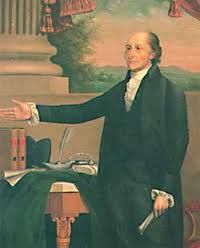“Punting the Pundits” is an Open Thread. It is a selection of editorials and opinions from around the news medium and the internet blogs. The intent is to provide a forum for your reactions and opinions, not just to the opinions presented, but to what ever you find important.
New York Times Editorial: The G.O.P.’s ‘Pledge’
Extravagant promises and bluster are the stuff of campaign rhetoric, but the House Republicans’ “Pledge to America” goes far beyond the norm.
Its breathless mimicry of the Declaration of Independence – the “governed do not consent,” it declares, while vowing to rein in “an arrogant and out-of-touch government of self-appointed elites” – would be ludicrous, if these were not destructively polarized times.
While it promises to create jobs, control deficit spending and restore Americans’ trust in government, it is devoid of tough policy choices. This new “governing agenda” does not say how the Republicans would replace revenue that would be lost from permanently extending all of the Bush tax cuts, or how they would manage Medicare and Social Security, or even which discretionary programs would go when they slash $100 billion in spending. Their record at all of these things is dismal.
The best way to understand the pledge is as a bid to co-opt the Tea Party by a Republican leadership that wants to sound insurrectionist but is the same old Washington elite. These are the folks who slashed taxes on the rich, turned a surplus into a crushing deficit, and helped unleash the financial crisis that has thrown millions of Americans out of their jobs and their homes.
Not only are the players the same, the policies are the same. Just more tax cuts for the rich and more deficit spending. We find it hard to believe that even the most disaffected voters will be taken in. But again, these are strange and worrying times.
Still, the pledge was worth a careful reading. It is a reminder that there is a choice to be made this fall.
Maureen Dowd: Slouching Toward Washington
Holy Roddy McDowall.
Christine O’Donnell doesn’t understand why monkeys can’t turn into people right before her eyes.
Bill Maher continued his video torment of O’Donnell by releasing another old clip of her on his HBO show on Friday night, this time showing one in which she argued that “Evolution is a myth.”
Maher shot back, “Have you ever looked at a monkey?” To which O’Donnell rebutted, “Why aren’t monkeys still evolving into humans?”
The comedian has a soft spot for the sweet-faced Republican Senate candidate from Delaware, but as he told me on Friday, it’s “powerful stupid to think primate evolution could happen fast enough to observe it. That’s bacteria.
“I find it so much more damaging than the witch stuff because she could be in a position to make decisions about scientific issues, like global warming and stem cells, and she thinks primate evolution can happen in a week and mice have human brains.”

 Welcome to the Stars Hollow Health and Fitness weekly diary. It will publish on Saturday afternoon and be open for discussion about health related issues including diet, exercise, health and health care issues, as well as, tips on what you can do when there is a medical emergency. Also an opportunity to share and exchange your favorite healthy recipes.
Welcome to the Stars Hollow Health and Fitness weekly diary. It will publish on Saturday afternoon and be open for discussion about health related issues including diet, exercise, health and health care issues, as well as, tips on what you can do when there is a medical emergency. Also an opportunity to share and exchange your favorite healthy recipes. 



Recent Comments